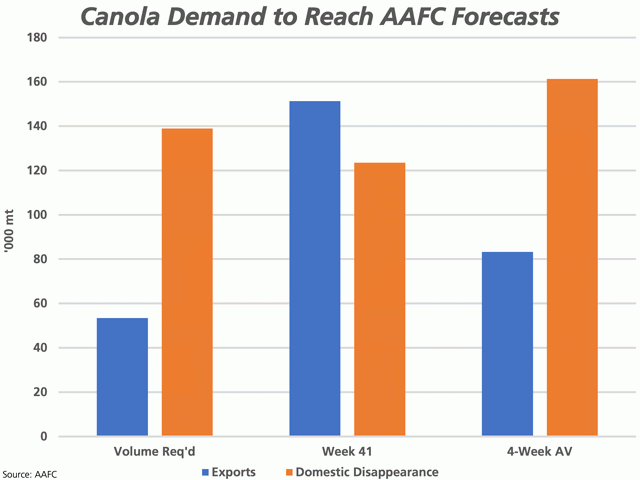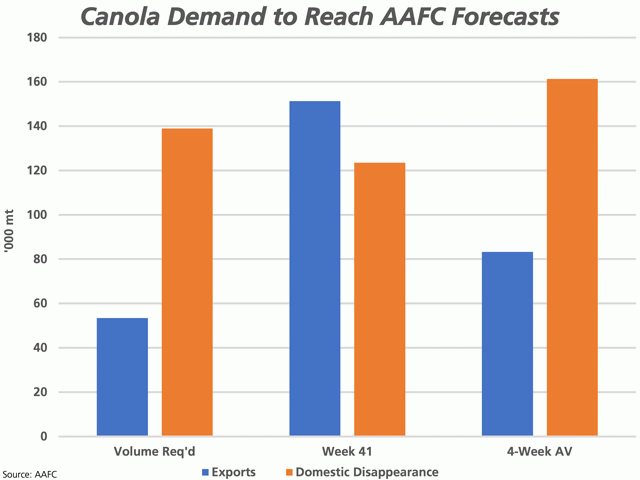Canada Markets
AAFC Pares 2021-22 Canola Exports and Crush
Agriculture and Agri-Food Canada's May supply and demand estimates for 2021-22 were released to include the most recent Statistics Canada March 31 stocks estimates. This included a March 31 canola stocks estimate of 3.9 million metric tons (mmt), down 49.3% from the previous crop year and the lowest since 2005. The official stocks estimate included a 2.3% year-over-year drop in commercial stocks to 1.7 mmt, or 9.6% higher than the five-year average, and a 63.2% drop in farm stocks to 2.2 mmt, or 71.6% below the five-year average.
In response, AAFC's May Canada: Grains and Cereals Supply and Disposition tables included a downward revision in exports for 2021-22 by 250,000 metric tons (mt) to 5.150 mmt and a downward reduction in crush by 200,000 mt to 8.3 mmt. A corresponding increase in the feed, waste and dockage residual number of 450,000 mt was reported. As a result, crop year supplies and carryout remain unchanged from the April to the May forecast, although the sources of the demand have shifted.
The unusual thing about this move is that the current pace of exports and crush are ahead of the steady pace needed to reach the previous April forecast of 5.4 mmt of exports and 8.5 mmt of crush.
P[L1] D[0x0] M[300x250] OOP[F] ADUNIT[] T[]
As seen on the attached chart, only 53,470 mt of exports per week over the remaining 11 weeks are needed to reach the revised forecast of 5.150 mmt, which compares to 151,300 mt of exports in week 41, or the week ended May 15, and the week 38-41 average of 83,250 mt.
A similar scenario exists for domestic disappearance (primarily crush), with 138,950 mt/week needed to reach the current forecast, which compares to 123,500 mt in week 41 and the four-week average of 161,320 mt.
The thing that is unusual about this month's revisions is that after 41 weeks, both exports and domestic crush were ahead of the steady pace needed to reach the April forecast, prior to this month's revisions. As of week 41, commercial stocks of 1.2236 mmt are 16.8% higher than the five-year average.
Time will tell, as tight 2021-22 supplies will test all forecasts prior to the end of the crop year.
Cliff Jamieson can be reached at cliff.jamieson@dtn.com
Follow him on Twitter @Cliff Jamieson
(c) Copyright 2022 DTN, LLC. All rights reserved.






Comments
To comment, please Log In or Join our Community .